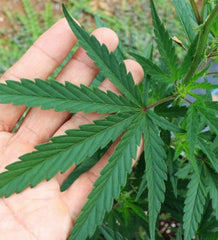
Is it possible to use CBD in the treatment of lupus?
What is lupus?
Lupus is one of the many autoimmune diseases that exist today. It is an infection that causes the body's immune system to attack its organs and tissues. Lupus manifests itself in several ways depending on the individual suffering from it. However, the most common symptom in patients suffering from this disease is inflammation in certain joints. It should also be noted that it affects the kidneys, brain, and blood cells. Lupus also affects the lungs and does not hesitate to attack the heart. In particular, some patients develop a facial rash due to this condition. This rash looks like butterfly wings. Lupus can be transmitted from one generation to another. In this specific case, only external factors trigger it. These can be infections, sunlight, or certain special medications.
The different types of lupus
Systemic lupus erythematosus is one of the most well-known forms of this disease. This variant is known to affect the entire body. The symptoms of systemic lupus erythematosus can worsen over time. This infection can cause inflammation in the lungs, joints, and kidneys. Its unique feature is that it occurs in cycles. However, the patient with this form of lupus does not develop any symptoms during periods of remission.
Discoid lupus erythematosus
This is also known as cutaneous lupus and only affects the epidermis of the skin. It manifests as a rash on the neck. It can also affect the face and scalp. The raised areas of the body of a patient suffering from a skin flea take on a scaly and thick appearance. This form of rash is quite capable of remaining in place for a few days or several years.
Drug-induced lupus
A small proportion of patients with lupus erythematosus may be exposed to the drug-induced form. However, it's important to note that the latter is triggered by certain prescription medications. These include treatments for high blood pressure or seizures. Antifungal and antibiotic medications can also cause a reaction to drug-induced lupus.
Neonatal lupus
This is the form of lupus that can be transmitted at birth. This is rare, but when it occurs, the mother with lupus-related antibodies gives birth to children with neonatal lupus. As they grow, they face certain liver problems. They may suffer from multiple skin rashes or very low blood counts. Almost all children with neonatal lupus develop severe anemia.

Why is CBD an excellent treatment for lupus?
In fact, the properties of CBD constituents reduce many symptoms of the disease. According to a 2009 study on CBD, it appears that the anti-inflammatory properties of cannabinoids regulate the immune system. This is entirely true, as CB1 and CB2 receptors were discovered in CBD. Those act on the central nervous system and immune cells, respectively. This is how CBD manages to reduce the pain caused by the onset of swelling.
CBD is also used to treat lupus because it is non-addictive. This simply means that it does not cause any form of addiction in patients. This is not the case with drug formulas developed by pharmaceutical companies. In fact, the treatments they design to combat lupus end up causing a certain form of addiction.
How to use CBD to treat lupus?
To combat lupus naturally, it is recommended to use CBD oil. It is one of the purest forms of cannabidiol that helps to reduce the pain caused by this condition. Therefore, the patient has the ability to use edible CBD oil. Thus, patients suffering from skin rashes and joint pain can use creamy CBD oils.
They also have the option of using topical ointments containing cannabidiol. Lupus patients who also smoke can opt for e-liquid. They should use it for vaping. In fact, this method of consumption is recommended because it allows the CBD to be properly heated for a more efficient release of its cannabinoids.
How much CBD oil is needed to treat lupus?
The appropriate amount of CBD oil is determined by the doctor. Typically, medical experts prescribe a dose between 10 and 20 mg daily. This means a percentage of 1/6 of a milligram for every 5 kg of the patient's weight.
Can lack of treatment lead the patient into a coma?
Untreated lupus causes excruciating pain in a patient. The patient suffers terribly during these attacks. Since the pain threshold is exceeded, he or she may lose consciousness. When the patient is very fragile, they may fall into a comatose state.





